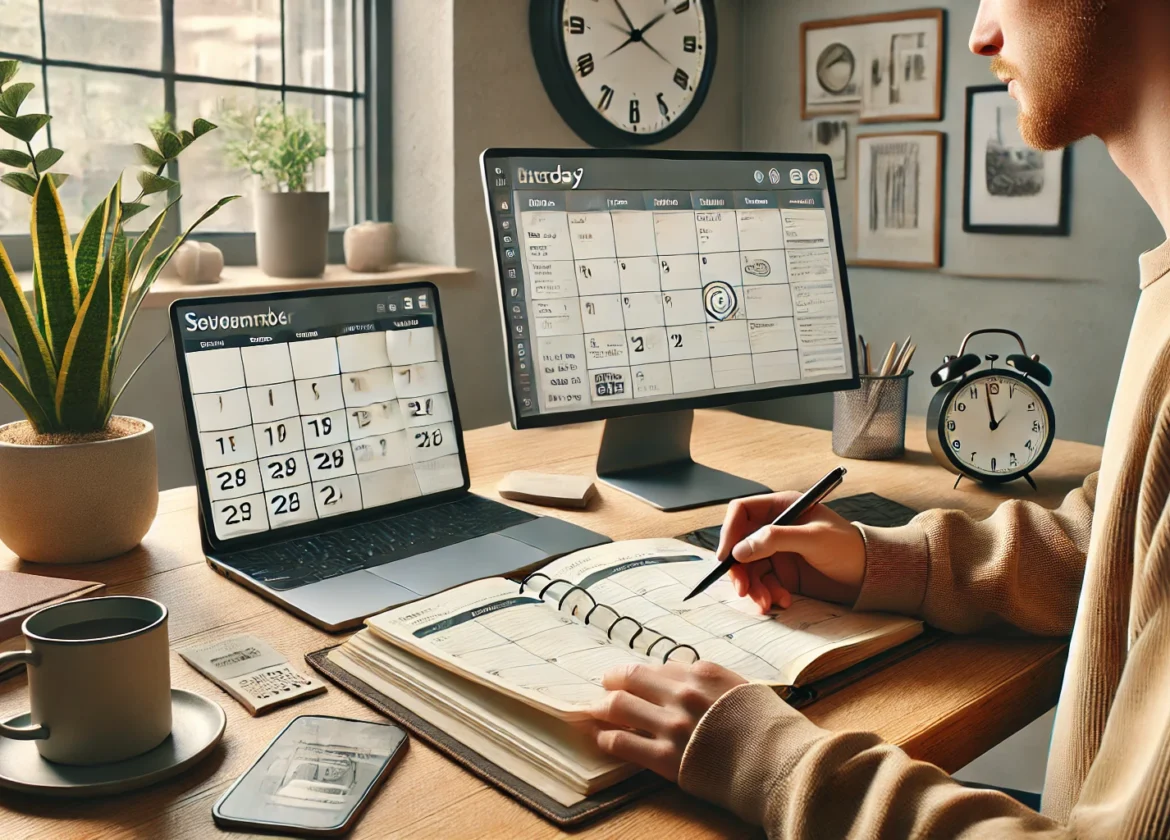Do your days feel rushed, overwhelming, or like there’s never enough time? You’re not alone. In a world that constantly demands more, time management is one of the most powerful wellness tools you can have.
And the good news is: managing your time isn’t about squeezing more into your day. It’s about using your time more intentionally, in a way that supports your peace, focus, and energy.
Let’s dive into how to reclaim your time, reduce stress, and build a routine that actually works for you.
Why Time Management Affects Your Well-Being
Poor time habits often lead to:
- Chronic stress and anxiety
- Burnout
- Missed sleep and skipped meals
- Feeling behind or inadequate
- Less time for self-care and relationships
When you take control of your time, you create more space for balance, clarity, and calm.
1. Start with a Reality Check
Before you change your routine, get clear on how you’re currently spending your time.
Try:
- Writing down what you do for a full day
- Using a time-tracking app
- Noting how long common tasks actually take
- Identifying “time leaks” (social media, unnecessary multitasking, etc.)
Awareness is the foundation of change.
2. Define Your Priorities
Not everything deserves your time and energy.
Ask:
- What are my top 3–5 most important things each day?
- What truly supports my goals, well-being, and values?
- What can I let go of (or delegate)?
Time management isn’t about doing more—it’s about doing what matters most.
3. Plan Your Day (the Night Before)
Spending just 5–10 minutes planning your next day can reduce morning stress and increase productivity.
Try:
- Listing 3 main priorities
- Time-blocking your schedule
- Preparing your space, meals, or clothes in advance
- Reviewing any appointments or reminders
You start the day ahead instead of behind.
4. Use Time Blocking for Focus
Time blocking means assigning specific chunks of time to certain tasks—and only focusing on that task during that block.
Example:
- 9:00–10:00 AM: Respond to emails
- 10:00–12:00 PM: Creative work
- 1:00–1:30 PM: Lunch
- 3:00–3:30 PM: Walk/stretch
It reduces decision fatigue and multitasking—two major energy drainers.
5. Apply the “2-Minute Rule”
If something takes less than 2 minutes to do—do it right away.
Examples:
- Replying to a quick message
- Washing your cup
- Filing a paper
- Sending a short email
This keeps small tasks from piling up and causing overwhelm.
6. Learn to Say “No” (or “Not Now”)
Every “yes” to something is a “no” to something else. Protect your time by:
- Saying no to unnecessary commitments
- Rescheduling when you’re stretched too thin
- Being honest about your availability
- Setting time boundaries with kindness
Your time is your responsibility. Guard it with care.
7. Limit Distractions and Focus in Bursts
You don’t need 3 hours of uninterrupted silence. You just need focused sprints.
Try:
- 25-minute focus blocks + 5-minute breaks (Pomodoro Technique)
- Turning off phone notifications
- Working with music or ambient sound
- Putting your phone in another room
Small windows of deep focus = big results.
8. Batch Similar Tasks Together
Batching saves brainpower and time.
Group similar activities together:
- Answer emails all at once
- Run errands in the same area at the same time
- Schedule calls or meetings back-to-back
- Create content or plan meals in a single block
Your brain loves flow. Give it what it wants.
9. Build in Buffer Time
Most people underestimate how long things take—then feel frustrated.
Give yourself:
- 5–10 minutes between tasks
- Extra time for transitions and delays
- Breathing room in your calendar
- “White space” to rest, reflect, or reset
Rushing is optional. Give yourself space to breathe.
10. Celebrate Progress (Not Just Productivity)
You’re not a robot. You don’t need to “crush it” every day to feel proud.
At the end of your day, ask:
- What did I move forward today?
- What am I proud of—big or small?
- What helped me feel calm and clear?
This builds momentum with compassion, not pressure.
Your Time Is Your Power
When you manage your time well, you reduce stress, improve focus, and reclaim your life.
So today, pause. Look at your calendar. Look at your heart. And ask:
“What really matters to me today?”
Then make space for that—on purpose. 💛⏳




